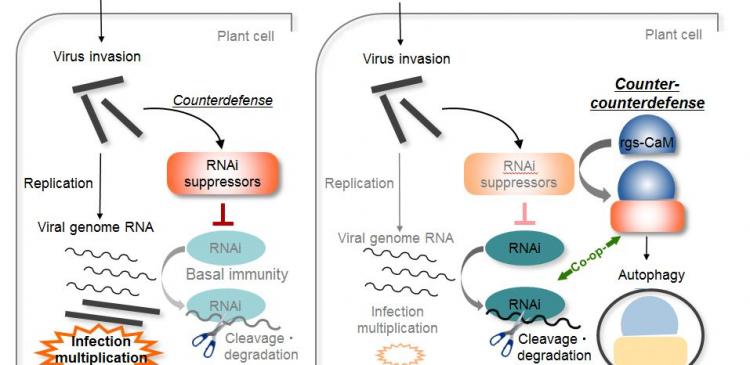The tobacco plant's protein could be used to enhance existing crop immune systems. © Dennis Tang
Written by: Aya Kawanishi
Although crops have a general defense mechanism in order to fight against viruses, their invaders counteract this defense by suppressing the plant immune response. Evidence from recent studies implied that plants have developed an additional set of countermeasures to combat the virus’s immune suppression tactics.
In order to examine how plants do this, the researchers set out to find the mechanisms involved. Their results appear in the Proceedings of the National Academy of Sciences (PNAS).
They found rgs-CaM, otherwise known as “tobacco calmodulin-like protein”, a calcium-binding messenger protein (Calmodulin is an abbreviation for “CALcium MODulated proteIN). In tobacco this protein binds to the viral (RNA interference) suppressors (molecules produced by the virus that chemically counteract the plants’ own defenses) and inhibits the virus from impeding the plant’s defenses.
These findings have the potential to enhance the immune systems for crops that are vulnerable to pesticide-resistant viruses. The results of this research may well have an impact beyond tobacco crops. “Because most viruses encode RNAi suppressors, this study may contribute to the development of a molecular breeding strategy to confer resistance other viruses in crops,” said Associate Prof. Nakahara.
References:
-----------------
Kenji S. Nakahara, Chikara Masuta, Syouta Yamada et al. Tobacco calmodulin-like protein provides secondary defense by binding to and directing degradation of virus RNA silencing suppressors. Proceedings of the National Academy of Sciences U S A. 2012 Jun 19;109(25):10113-8. Epub 2012 Jun 4. doi: 10.1073/pnas.1201628109
For further information contact:
----------------------------------------
Kenji Nakahara
Pathogen-Plant Interactions Group
Research Faculty of Agriculture
Hokkaido University
N9, W9, Kita-ku, Sapporo
060-8589 Japan
Tel: +81-11-706-2490
Email: [email protected]




